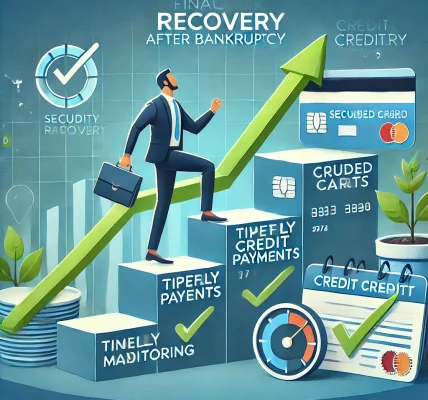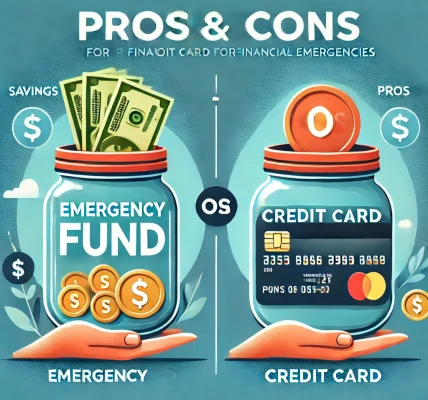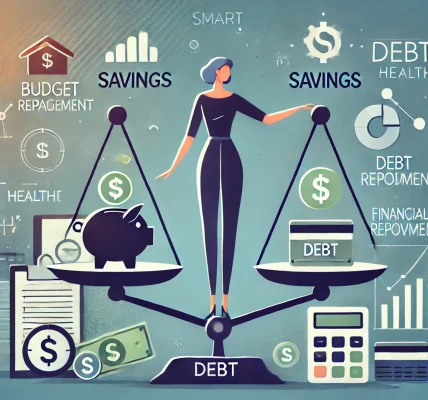Debt is a common part of financial life, but failing to repay it can lead to severe consequences. Whether it’s credit card debt, personal loans, or medical bills, unpaid debt can negatively impact your financial stability and even lead to legal action. Understanding the potential repercussions of not paying your debt can help you make informed decisions and take proactive steps to avoid financial disaster.
Understanding the Immediate Impact of Unpaid Debt
As soon as you miss a payment, creditors begin taking steps to collect their money. The consequences of non-payment escalate over time:
1. Late Fees and Penalties
- Most lenders impose late fees immediately after a missed payment.
- Interest rates may increase, making it harder to pay off the debt.
- Some credit card companies apply penalty APRs (higher interest rates after a missed payment).
2. Damage to Your Credit Score
- Payment history is the most significant factor in credit scoring.
- A single missed payment can drop your credit score by 50–100 points.
- Defaulting on loans can remain on your credit report for 7 years.
3. Collection Calls and Letters
- Creditors may start sending reminders via mail, email, or phone calls.
- Persistent non-payment leads to debt collection agencies getting involved.
- Debt collectors may contact your workplace or relatives in some cases.
What Happens After a Few Months of Non-Payment?
4. Debt Sent to Collections
- If a debt remains unpaid for 90–180 days, creditors may sell it to a debt collection agency.
- Collection agencies may use aggressive tactics to recover funds.
- Debt accounts in collections further damage your credit score.
5. Legal Actions: Lawsuits and Judgments
- Creditors can sue you for unpaid debts if you ignore collection efforts.
- If you lose a lawsuit, the court may issue a judgment against you.
- Judgments can result in wage garnishment or liens on property.
6. Wage Garnishment and Asset Seizure
- A court order may allow creditors to take money directly from your paycheck.
- In extreme cases, assets like bank accounts or property may be seized.
- Federal laws limit the amount that can be garnished, but state laws vary.
7. Impact on Future Financial Opportunities
- A poor credit history makes it harder to get approved for loans or credit cards.
- Higher interest rates on future borrowing.
- Difficulty in securing rental housing or employment (some employers check credit history).
What Happens to Different Types of Debt?
Not all debts have the same consequences when left unpaid:
Credit Card Debt
- Interest accumulates rapidly, increasing the total amount owed.
- May lead to legal action if not addressed.
Student Loans
- Federal student loans offer deferment and forbearance options before defaulting.
- Defaulting can result in wage garnishment and loss of eligibility for future aid.
Medical Debt
- Some hospitals and providers offer payment plans.
- Unpaid medical bills can be sent to collections but may not immediately impact credit scores.
Mortgage Debt
- Missing payments can lead to foreclosure and loss of home.
- Foreclosure stays on credit reports for 7 years.
Personal Loans and Auto Loans
- Auto loan default can lead to vehicle repossession.
- Personal loans may result in lawsuits if left unpaid.
How to Avoid the Worst Consequences
If you’re struggling with debt, consider these steps:
1. Contact Your Lender Early
- Many lenders offer hardship programs to help you temporarily lower payments.
- Negotiating payment terms can prevent default.
2. Create a Debt Repayment Plan
- Consider the Debt Snowball (smallest debt first) or Debt Avalanche (highest interest rate first) methods.
- Prioritize essential debts like mortgage or auto loans.
3. Consider Debt Consolidation
- Consolidating multiple debts into a single loan with a lower interest rate can help manage payments.
- Credit counseling agencies can assist with setting up repayment plans.
4. Seek Professional Help
- Work with a certified credit counselor to explore options.
- If facing lawsuits, consult a debt attorney to understand legal rights.
5. Avoid Debt Settlement Scams
- Some companies promise to reduce debt for a fee but do not deliver.
- Verify credentials before signing any agreements.
Final Thoughts: Take Action Before It’s Too Late
Ignoring debt won’t make it go away. The longer you wait, the more severe the consequences become, from damaged credit scores to legal action. The key is to take proactive steps, communicate with creditors, and seek help if needed.



